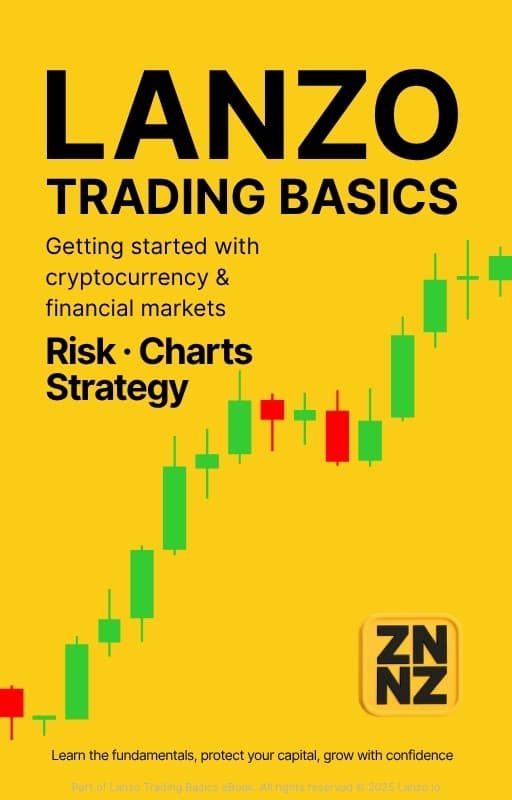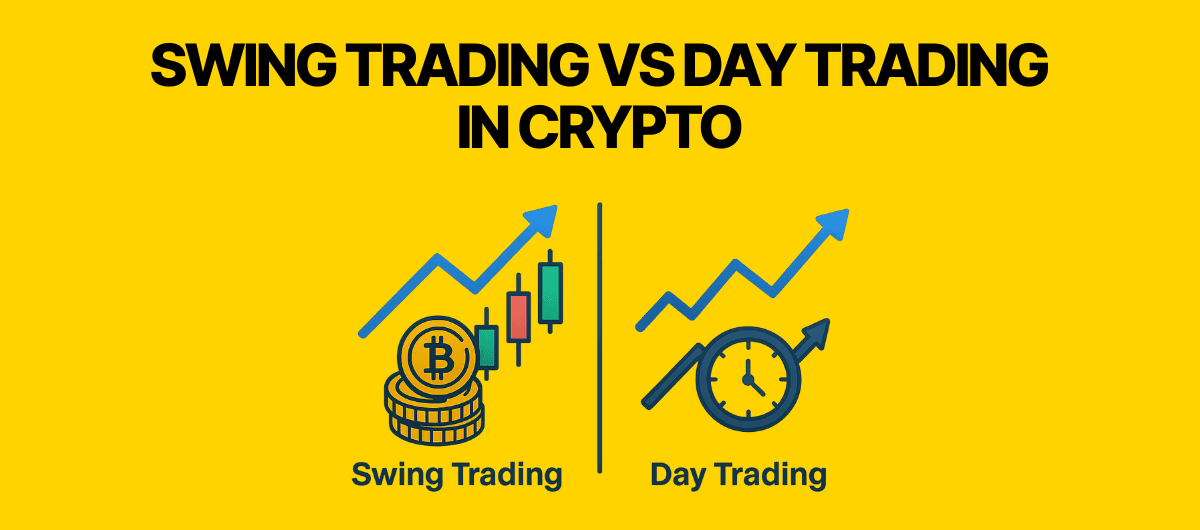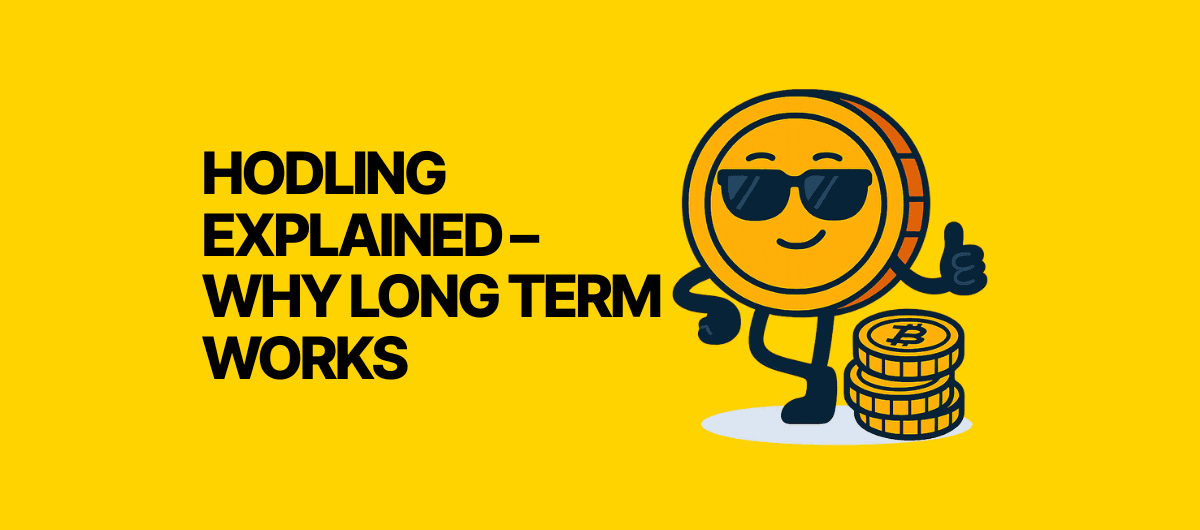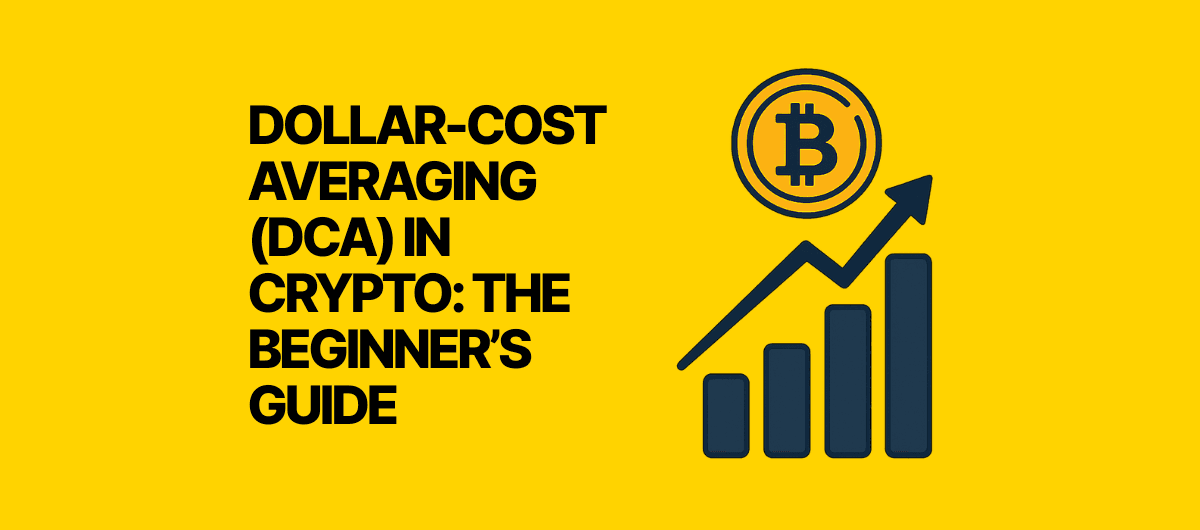Trading vs Investing: What’s the Difference? (2025 Guide)
Trading vs investing explained: key differences, pros and cons, strategies, and how to decide what’s best for you in 2025.

Hey, it’s Lanzo 👋
A lot of beginners ask me: “Should I trade or invest?”
Both are ways to grow money, both happen in crypto and stocks — but they’re not the same thing.
One is like sprinting 🏃, the other is like marathon running 🏅.
In this guide, I’ll break down:
- The real difference between trading and investing
- Pros and cons of each
- What type of person each fits best
- Risk management tips (Lanzo style ⚡)
- How you can actually combine both in 2025
Let’s go 👇
Trading vs Investing: Quick Definition
- Trading = short-term buying and selling for quick gains.
- Investing = long-term holding of assets to grow wealth slowly.
👉 Think of trading as active (you move in and out often).
👉 Think of investing as passive (you hold through ups and downs).
Both can work — but the mindset and skillset are very different.
Key Differences Table 📊
| Aspect | Trading | Investing |
|---|---|---|
| Time horizon | Minutes → Days → Weeks | Years → Decades |
| Goal | Quick profits | Long-term wealth growth |
| Risk | High (stop-losses needed) | Lower (diversification + patience) |
| Effort | Active monitoring, charts, strategies | Low effort, buy & hold |
| Stress level | High (fast moves, volatility) | Lower (ignore short-term swings) |
| Skills | Technical analysis, execution, risk mgmt | Patience, fundamental analysis |
| Common assets | Crypto, stocks, forex, derivatives | Stocks, crypto, ETFs, real estate |
Trading Explained ⚡
Trading means you try to profit from short-term price movements.
Example: Buy Bitcoin at €60,000, sell at €61,000. Profit: €1,000.
There are styles of trading:
- Scalping → minutes, very fast trades
- Day trading → in and out within the day
- Swing trading → hold for days or weeks
- Position trading → months, but still “active”
👉 Lanzo Tip: Trading is like running a business. Treat it seriously — risk management first, profits second.
Investing Explained 🏦
Investing means holding assets long-term.
Example: Buy Bitcoin at €10,000 in 2017, still hold today → huge profit.
Investors believe in the growth of the asset or economy.
- Buy and hold quality stocks or crypto (ETH, BTC).
- Reinvest profits (compound interest).
- Ignore daily volatility.
👉 Lanzo Tip: Investing rewards patience. Don’t panic sell when prices dip.
Pros & Cons ✅❌
Trading Pros
- Potential for quick profits
- Exciting, dynamic, can work in bull & bear markets
- You learn markets very deeply
Trading Cons
- Stressful, time-consuming
- Easy to lose money if emotional
- High fees if overtrading
Investing Pros
- Passive, less stressful
- Takes advantage of compounding
- Historically, long-term investing outperforms most traders
Investing Cons
- Slow — no quick profits
- Requires patience
- Risk of big drawdowns if you buy at the top
Which One Is Right for You?
Choose Trading if:
- You love charts and fast decisions
- You can handle stress & discipline
- You have time to practice daily
Choose Investing if:
- You prefer passive wealth-building
- You believe in long-term growth (crypto adoption, stocks, economy)
- You don’t want to watch charts all day
👉 Most people? They mix both. Long-term investing + a small trading account for learning.
How Risk Works 🎯
- Traders use stop-losses and risk only 1–2% per trade.
- Investors diversify and use time as their weapon.
⚡ Lanzo Tip: Whether you trade or invest — always protect downside first. Growth comes naturally if you survive.
Trading vs Investing in Crypto (2025)
Crypto is unique:
- It trades 24/7 (no closing bell).
- Volatility is higher than stocks.
- Both traders and investors can profit big.
Examples:
- Trader profits from 5% Bitcoin swing in a day.
- Investor profits from 10x growth over 5 years.
Both work — but require discipline.
Related: Stablecoin Staking in 2025
Combining Trading & Investing 🌀
Many people do both:
- Core investing → 80% in long-term BTC, ETH, stocks.
- Trading account → 20% for short-term action.
This way, you build wealth steadily but still learn trading skills.
TL;DR 📝
- Trading = fast, risky, active.
- Investing = slow, steady, passive.
- Both have pros/cons.
- Most people benefit from combining the two.
- Protect downside → that’s how you last long enough to win.
FAQ
Yes. Trading involves high short-term risk, while investing spreads risk over years.
Bybit Exchange
Trade Bitcoin, Ethereum, and altcoins with low fees and advanced tools. Great for learning short-term trading.
This is an affiliate link. If you buy, Lanzo may earn a commission at no extra cost to you.
Ledger Nano X
Whether you trade or invest, keep your assets safe. Ledger gives you full self-custody.
This is an affiliate link. If you buy, Lanzo may earn a commission at no extra cost to you.
⚡ Lanzo Tip: You don’t have to pick a side. Trade to learn, invest to grow. Both roads lead to financial freedom if you stay disciplined.

Lanzo Trading Basics — eBook
Beginner-friendly handbook to risk management, clean chart reading, and turning it into a simple, testable strategy.
Charged in EUR. Your bank converts automatically.
(This post contains affiliate links — supporting Lanzo at no extra cost to you.)
You might also like
Not financial advice. Based on public sources. As of today.


